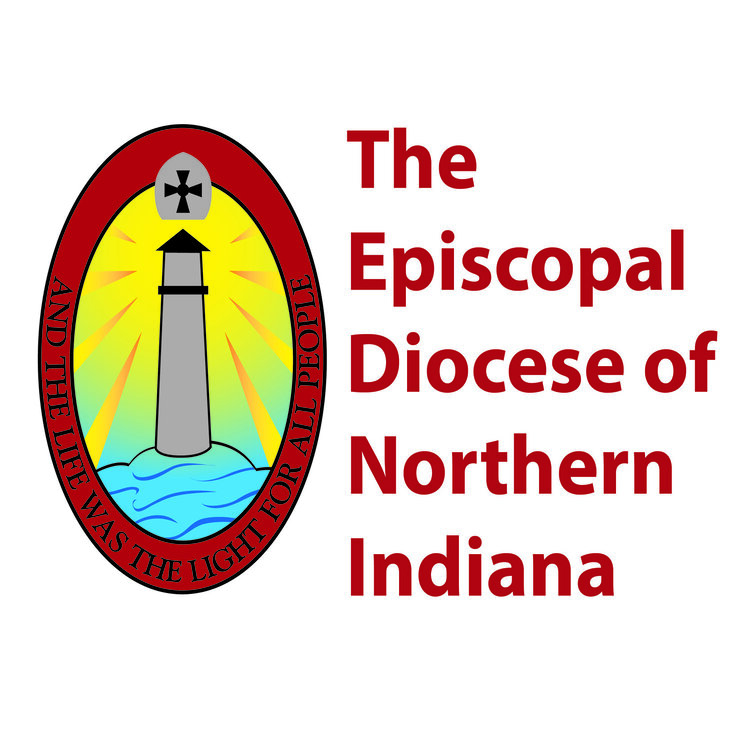You may think of Bishop Ed Little as a Biblical teacher, a joyful proclaimer of Jesus Christ, a mentor, an encourager, a leader who will “do whatever it takes.” He is all that AND he provides strategic focus for the Diocese of Northern Indiana. In the coming months, By Word and Example will highlight the legacy of Bishop Ed as well as his partner in strategic strengthening of congregations, Canon SuzeAnne Silla.
We begin this month with an overview of this legacy, highlighting the Core Values and Five Imperatives of Ministry that serve as a beacon for us as Christians and for our parishes.
Also included this month is an update on the inspiring Year-Round Stewardship Workshop and its lessons on the Biblical principles of stewardship.
The Strategic Legacy of Bishop Ed Little
From the beginning of his ministry as the seventh bishop of the Episcopal Diocese of Northern Indiana, the Rt. Rev. Edward S. Little II has beamed a spiritual focus for us to follow. Personifying the lighthouse on our diocesan seal, Bishop Ed has delivered powerful messages that illuminate priorities for Christ-centered living and ministry.
This strategic legacy began with his seating sermon in 2000, in which he called on his new flock to embrace the lighthouse as a vision for our individual and congregational ministries. To prompt and guide us, Bishop Ed set four core values for the diocese:
1. A passion for the Gospel of Jesus Christ
2. A heart for the lost
3. A willingness to do whatever it takes
4. A commitment to one another
Throughout the 15 years since that sermon, Bishop Ed has gathered story after story of how these values are beautifully lived in the parishes of northern Indiana. While he loves recounting them, he’d rather that we each become skilled at telling our own story.
Strategically, the Bishop sought to strengthen congregations so that we have stories to tell and are emboldened to do so. He named the Rev. SuzeAnne Silla as Canon to the Ordinary and blessed her to use her extensive congregational development experience to establish the Diocesan Congregational Development Institute (DCDI).
Since 2008, dozens of lay and clergy people from around the diocese have participated in DCDI. Bishop Ed says they are more skilled and confident in a whole range of areas – from problem-solving to vision casting to conflict-management.
“At the heart of DCDI is a focus on learning how to tell the story; how to articulate who Jesus is and what he’s done for us, and how to share the ways that he has directly touched our lives,” explains Bishop Ed.
The core values provided a focus for ministry, and DCDI helped strengthen congregations to be up to the task. Next, in 2013, Bishop Little once again provided strategic focus by outlining five “imperatives,” or hallmarks of ministry that he prays we will bequeath to future generations of Christians. These are:
· Focus on Jesus
· Think Biblically
· Proclaim Good News
· Feed the Hungry
· Mentor the Young
“Proclaim Good News” is lived out through this By Word and Example blog. In coming months, we will review even more closely how the strategic legacy of Bishop Ed Little has powerfully impacted our diocese. YOUR stories regarding the Core Values or Five Imperatives are welcome! Please send them to info@ednin.org.
The Miraculous Draught by John Reilly.
Update: Year-Round Stewardship Conference
On a chilly spring morning on April 11, about 40 people from around our diocese gathered at Lindenwood Retreat Center to be equipped and inspired to develop stewardship activities within their congregations as year-round ministries.
Bishop Little framed the day with reflections on the essence of what it means to steward resources, and to whom those resources really belong, citing Scripture that provides Biblical principles as a foundation for stewardship ministry.
“All we have belongs to God, so we are stewards or managers of what He has given us. We don’t give God ‘our’ money – everything we give is going back to God. We should use these gifts in ways the give glory to Jesus and extend His Kingdom,” Bishop Ed explained.
The Bishop also gently warned stewardship leaders against communicating their work “fundraising.” Often, stewardship is reduced to an annual fundraising activity because the church budget must be met. This is communicated as an obligation, rather than joyfully managing God’s resources and returning some back to Him for the purpose of growing God’s Kingdom.
Highlighting the joyful result of communicating the correct message was personal testimony from Rob Eckstein, Stewardship Chair of St. John the Evangelist, Elkhart. Rob explained his examination of his own response to God’s abundance in his life, and how that change his life. Rob’s story beautifully illustrated that the most important benefits of stewardship ministry have nothing to do with your parish budget, but rather with deepening personal relationships with Jesus Christ.
Workshop participants appreciated the “fresh way” the stewardship message was explained in the three-hour session, one citing the connection between stewardship and discipleship as particularly valuable. People also liked the ideas presented for year-round activities to express gratitude and emphasize various kinds of giving, such as annual, capital, and planned. Many also commented that they are hungry for more information.
The diocesan Faithful Stewards Commission will take these comments to heart to prepare future workshops as well as resource lists for congregations. The Commission, made up of lay and clergy volunteers, wants to help the parishes of the Diocese of Northern Indiana be aware, equipped, and inspired to joyfully embrace stewardship as a year-round ministry.



